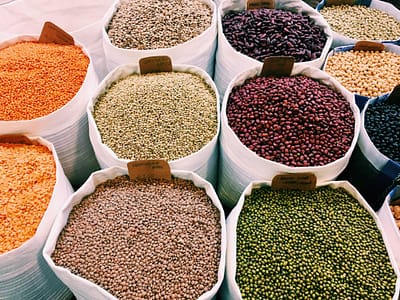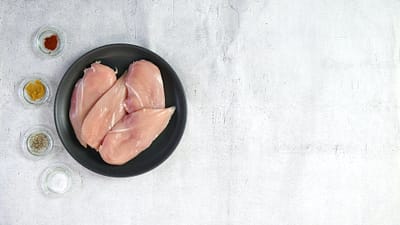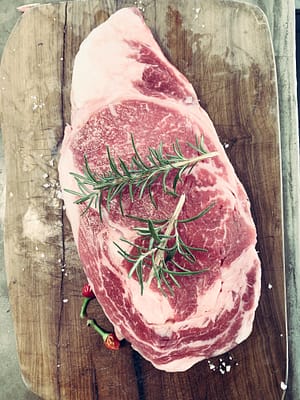Protein is the core of a healthy diet, playing a crucial role in not just building but repairing tissues, supporting immune function, and serving as a source of energy. Whether you’re an athlete looking to maximize muscle growth or simply striving for a balanced diet, understanding the highest and healthiest protein-rich foods is essential.
In this comprehensive guide, we’ll explore a variety of protein-rich foods, from animal-based to plant-based options, to help you make informed choices for a nutritious and satisfying diet.
The Importance of Protein in Your Diet
Before we dive into the specifics of the highest and healthiest protein-rich foods, it’s vital to understand the significance of protein in your diet:
Muscle Building and Repair
Protein is undoubtedly the building block of muscles and is crucial for repairing and maintaining muscle tissue. Being a building block makes it indispensable for athletes, bodybuilders, and individuals looking to increase lean muscle mass.
Immune Function
Proteins make many components of our immune system, such as antibodies. A diet rich in protein supports a robust immune response.
Hormone Regulation
Proteins are essential to hormone production and regulation, thus affecting various bodily functions, including metabolism and mood.
Energy Source
You can use protein for energy when you need it, even though carbohydrates and fats are primary energy sources, such as during intense physical activity or when you typically deplete carbohydrate storage.
Feeling Full
The highest and healthiest protein-rich foods can help you feel full, reducing the likelihood of binge eating and supporting weight management.
Highest Animal-Based Protein Sources
Animal-based protein sources are rich in essential amino acids, making them complete proteins and the highest and healthiest protein-rich foods. These food sources are what provide all the amino acids your body needs. Here are some of the highest animal-based protein sources:
Lean Meats
Chicken Breast: Skinless, boneless chicken breast is exceptionally lean and provides about 31 grams of protein per 3.5-ounce (100-gram) serving.
Turkey: Lean turkey meat offers a similar protein content to chicken breast, making it an excellent choice for a protein-rich meal.
Fish
Salmon: Salmon is rich in protein and packed with heart-healthy omega-3 fatty acids. Including just 3.5 ounces (100 grams) in your serving of cooked salmon contains approximately 25 grams of protein.
Tuna: Tuna is another fish with a high protein content, offering about 30 grams of protein per 3.5-ounce (100-gram) serving.
Eggs
Eggs are a versatile protein source, providing about 6 grams of protein per large egg. They also contain essential vitamins and minerals.
Dairy Products
Greek Yogurt: Greek yogurt is renowned for its protein content. A 6-ounce (170-gram) serving typically provides 15-20 grams of protein.
Cottage Cheese: Cottage cheese is another protein-based dairy product, with approximately 14 grams of protein per 1/2 cup (113-gram) serving.
Lean Beef
Lean cuts of beef, such as tenderloin or sirloin, are excellent protein sources. A 3.5-ounce (100-gram) serving can supply up to 36 grams of protein.
Highest Plant-Based Protein Sources
Plant-based protein sources are abundant in many diets, especially for vegetarians and vegans. While plant-based proteins may lack some essential amino acids, combining different sources can provide complete proteins. Here are some of the highest plant-based protein sources:
Legumes
Lentils: Lentils are a protein powerhouse, offering approximately 9 grams per 100-gram serving. They are also rich in fiber and various vitamins and minerals.
Chickpeas: Chickpeas, or garbanzo beans, provide around 7-8 grams of protein per 1/2 cup (100-gram) serving. They are a staple in many vegetarian dishes.
Tofu and Tempeh
Tofu: Tofu is made from soybeans and is a versatile plant-based protein source. A 3.5-ounce serving typically contains 8-15 grams of protein, depending on its firmness.
Tempeh: Tempeh is another soy-based product with a nutty flavor and firm texture. It offers around 19 grams of protein per 3.5-ounce serving.
Edamame
These young soybeans are delicious and nutritious, providing about 11 grams of protein per 1/2 cup serving.
Nuts and Seeds
Almonds: Almonds are one of the most protein-rich nuts, offering approximately 21 grams per 3.5-ounce serving.
Chia Seeds: Chia seeds are a small but mighty source of protein, containing around 17 grams of protein per 3.5-ounce serving. They are also high in fiber and healthy fats.
Quinoa
Quinoa is a versatile grain that is a complete protein, providing about 4 grams per 1/2 cup serving. It is one of the favorite foods of vegetarians and vegans.
Balancing Your Protein Intake
While protein is essential, it’s vital to maintain a balanced diet by including various foods. Here are some tips to help you strike the right balance:
Portion Control: Be mindful of what portion sizes you choose to ensure you get enough protein without overdoing it.
Diversity: Incorporate a mix of animal-based and plant-based protein sources to reap the benefits of different nutrients.
Nutrient-Rich Choices: Choose whole foods that provide protein, essential vitamins, minerals, and fiber.
Final Thoughts
Protein is a core part of a healthy diet, playing a crucial part in various bodily functions. Whether you prefer animal-based or plant-based sources, incorporating the highest and most nutritious protein-rich foods into your meals is essential for overall health and well-being. By choosing nutrient-dense proteins and maintaining a balanced diet, you can enjoy the benefits of sustained energy, muscle maintenance, and immune support while savoring the delicious flavors of protein-rich meals. So, embark on your journey to better nutrition by exploring the highest and healthiest protein sources and making them a part of your daily diet.





